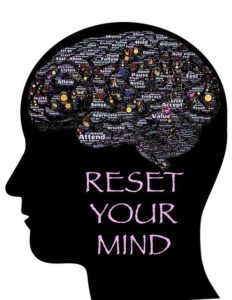Finding your calm starts with recognizing what stresses you out. To manage stress effectively, try mindfulness techniques like deep breathing or a body scan to promote relaxation. Engage in physical activities, such as yoga or nature walks, to clear your mind and boost your mood. Consider prioritizing tasks with tools like time blocking to regain control over your schedule. Don’t forget the importance of a balanced diet, quality sleep, and cultivating a support system of friends and family. By implementing these strategies, you can foster resilience and well-being. There’s so much more you can explore to enhance your stress management!
Understanding Stress and Its Effects
 Stress is an inevitable part of life, and understanding how it affects you is essential for your well-being. You’ve likely experienced various stress triggers, whether they’re related to work, relationships, or personal challenges. Identifying these triggers is the first step in managing stress effectively.
Stress is an inevitable part of life, and understanding how it affects you is essential for your well-being. You’ve likely experienced various stress triggers, whether they’re related to work, relationships, or personal challenges. Identifying these triggers is the first step in managing stress effectively.
When you recognize what sets off your stress response, you can take proactive measures to address those situations before they escalate.
It’s important to remember that stress isn’t inherently negative; it can also serve as a motivator. However, when stress becomes overwhelming, it can lead to physical and emotional health issues. You might notice symptoms like irritability, fatigue, or difficulty concentrating.
By acknowledging these signs, you can start developing emotional resilience—the ability to bounce back from stress and adversity.
Building emotional resilience involves cultivating coping strategies that help you manage stress effectively. This includes practicing self-care, seeking support from friends or family, and finding healthy outlets for your emotions.
It’s okay to feel stressed; what matters is how you respond to it. Consider keeping a journal to track your stress levels and responses to different situations. This can provide valuable insights into your patterns and help you develop healthier coping mechanisms.
Mindfulness and Meditation Techniques
In the midst of life’s chaos, practicing mindfulness and meditation can be powerful tools to help you regain balance and clarity. By integrating these techniques into your daily routine, you can create a sanctuary of calm amidst the noise.
One effective method is mindful breathing. Start by finding a comfortable position, either sitting or lying down. Close your eyes and take a deep breath in through your nose, allowing your abdomen to expand fully. Then, exhale slowly through your mouth. Focus solely on your breath; notice the sensation of air entering and leaving your body. This simple practice can ground you, helping to alleviate stress and anxiety.
Another helpful technique is the body scan. This practice encourages you to connect with your body and promote relaxation. Begin by lying down in a quiet space. Close your eyes and take a few deep breaths.
Start at the top of your head, then slowly move your attention down through your body, part by part. Notice any tension or discomfort and consciously relax those areas as you breathe. As you progress down to your toes, you’ll likely feel a sense of release and ease wash over you.
Incorporating mindful breathing and body scan exercises into your day, even for just a few minutes, can markedly enhance your well-being. Remember, it’s about being present and kind to yourself.
Embrace these techniques, and you’ll find your path to tranquility.
Physical Activity for Stress Relief
Engaging in physical activity can be a powerful antidote to the pressures of daily life. When stress starts to weigh you down, moving your body can help lift that burden. Consider incorporating yoga practices into your routine; the combination of movement and breathing exercises fosters a sense of calm, helping clear your mind and reduce tension.
Nature walks are another fantastic way to reconnect with yourself while enjoying the great outdoors. The serenity of nature can enhance your mood and provide a revitalizing perspective.
If you’re looking for something more energetic, why not try dancing therapy? Letting loose on the dance floor not only boosts your endorphins but also allows you to express yourself freely.
Team sports can be a great way to combine physical activity with social interaction. Being part of a group fosters camaraderie, and the competitive spirit can channel your stress into something positive.
If you prefer solo activities, outdoor activities like hiking or biking can also work wonders for your mental well-being.
Don’t overlook fitness classes or martial arts, either. These structured environments provide motivation and a sense of accomplishment, which can be incredibly rewarding.
Each time you challenge yourself physically, you’re not just building strength; you’re also cultivating resilience against stress.
Incorporating these activities into your life can be a game-changer. Remember, it’s about finding what resonates with you and sticking with it—your mind and body will thank you.
Time Management Strategies
Finding balance in your daily life can considerably reduce feelings of overwhelm. One effective way to achieve this is through time management strategies. By implementing prioritization methods, you can identify what truly matters and allocate your time accordingly.
Start by listing your tasks and categorizing them based on urgency and importance. The Eisenhower Matrix, for example, helps you distinguish between what’s critical and what can wait. This way, you can focus on high-priority tasks without feeling bogged down by less important ones.
Utilizing scheduling tools can also streamline your day. Whether it’s a digital calendar, a planner, or a simple to-do list app, these tools help you visualize your tasks and deadlines.
Allocate specific time blocks for each task, allowing for breaks in between. This not only keeps you organized but also prevents burnout.
Remember, it’s okay to say no to additional responsibilities if they don’t align with your priorities. Delegate tasks when possible, and don’t hesitate to ask for help.
Lastly, regularly review your schedule and adjust it as needed. Life is dynamic, and being flexible will help you maintain control over your time.
Healthy Lifestyle Choices
Making healthy lifestyle choices is essential for managing stress and enhancing overall well-being. You mightn’t realize it, but your daily habits considerably impact your stress levels. One important area to focus on is your nutrition habits. Eating a balanced diet rich in fruits, vegetables, whole grains, and lean proteins can provide your body with the nutrients it needs to function effectively.
When you nourish yourself properly, you’re more resilient to stressors, and your mood can improve. Try to limit processed foods and sugar, as they can lead to energy crashes and heightened anxiety.
Another key component of a healthy lifestyle is sleep hygiene. Getting enough quality sleep can make a world of difference in how you handle stress. Aim for 7-9 hours of sleep each night, and establish a calming bedtime routine.
This could involve turning off screens an hour before bed, reading a book, or practicing relaxation techniques like deep breathing or meditation. Creating a comfortable sleep environment—cool, dark, and quiet—can also help you achieve better rest.
Building a Support System
A solid support system can be a game-changer when it comes to managing stress. Surrounding yourself with people who provide emotional support and foster strong social connections can help you navigate life’s challenges more effectively.
It’s important to cultivate relationships that not only lift you up but also encourage open communication. Here are three key elements to contemplate when building your support system:
-
Family Relationships: Lean on your family for understanding and comfort. These bonds can provide a safe space to share your feelings and experiences.
-
Friendship Bonds: Nurture friendships that offer genuine support. Good friends can serve as accountability partners, encouraging you to stay positive and focused on your well-being.
-
Community Resources: Explore local support groups or community resources that align with your needs. Engaging with others who share similar experiences can foster connection and provide valuable insights.
Having a strong network isn’t just about numbers; it’s about quality. Reflect on the people who make you feel heard and valued, and don’t hesitate to reach out for help when you need it.
Whether it’s discussing your stressors with a trusted friend or participating in a support group, these interactions can considerably reduce stress.
Relaxation Techniques to Try
When stress starts to feel overwhelming, incorporating relaxation techniques into your routine can make a significant difference in how you cope. One of the simplest yet most effective methods is practicing breathing exercises. Just take a moment to focus on your breath. Inhale deeply through your nose, hold for a few seconds, and then exhale slowly through your mouth. Repeat this several times. You’ll likely notice your body beginning to relax as your heart rate slows and your mind clears.
Another powerful technique is guided imagery. This involves visualizing a peaceful scene, such as a serene beach or a quiet forest. Close your eyes, take a deep breath, and picture yourself in this calming environment. Allow the details to come alive—feel the warmth of the sun, hear the gentle waves, or smell the fresh pine. Guided imagery can transport you away from your stressors, providing a mental escape that rejuvenates your spirit.
You might also consider combining these techniques with gentle stretching or yoga. These practices not only enhance your physical well-being but also promote mental clarity and relaxation. Start with a few stretches while focusing on your breath, and see how your body responds.
Try to set aside a few minutes each day for these relaxation techniques. Consistency is key, and over time, you’ll likely find that you’re better equipped to handle whatever stress comes your way. Remember, it’s all about finding what works for you and making it a part of your daily life.
Creating a Positive Environment
Sometimes, the environment you find yourself in plays an essential role in how you manage stress. By intentionally creating a positive space, you can greatly improve your mood and reduce anxiety.
Here are three effective strategies to reflect on:
-
Incorporate Calming Colors: Color psychology shows that certain hues can evoke tranquility. Soft blues and greens promote relaxation, while warm tones can energize your personal space. Choose calming colors for your walls or decor to create a peaceful atmosphere.
-
Maximize Natural Light: Natural light can transform your space and mood. Open your curtains during the day to let sunlight flood in. If that’s not possible, reflect on using soft artificial lighting that mimics natural light. This can enhance your well-being and create a warm ambiance.
-
Declutter and Add Sensory Elements: A tidy space helps clear your mind. Decluttering your environment not only reduces visual stress but also allows you to focus better.
Incorporate sensory elements like indoor plants for a touch of nature, or soundscapes like gentle music or nature sounds to create a calming backdrop.
Conclusion
Finding your calm amid life’s chaos can feel like steering through a stormy sea, but with the right strategies, you can guide your ship towards tranquility. By embracing mindfulness, staying active, managing your time effectively, and fostering a supportive network, you’ll create a more balanced life. Remember, it’s okay to seek help and prioritize your well-being. Each small step you take is like a gentle wave, gradually smoothing out the rough waters of stress. You’ve got this!





